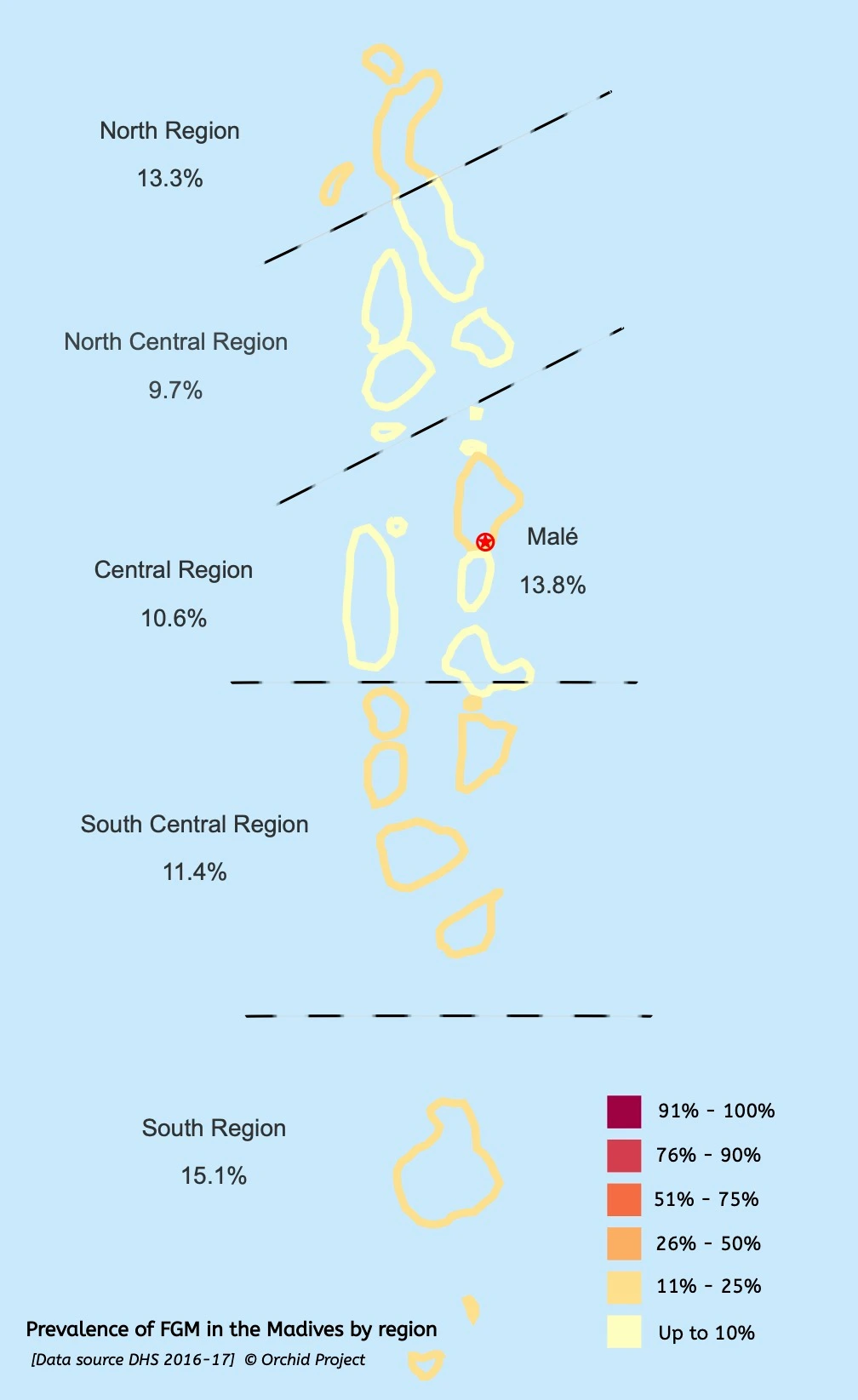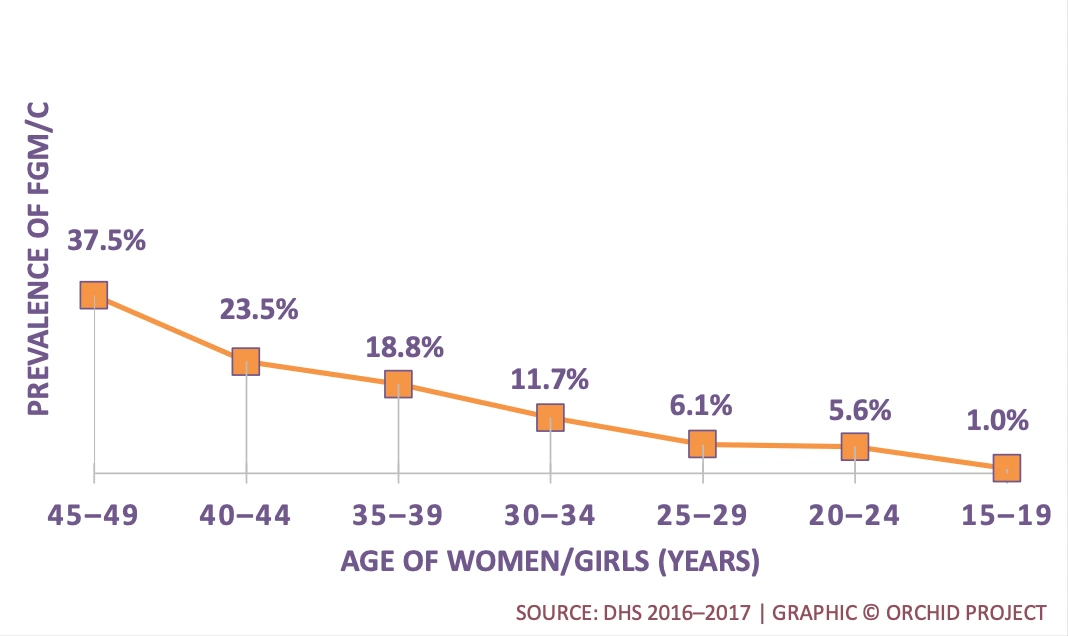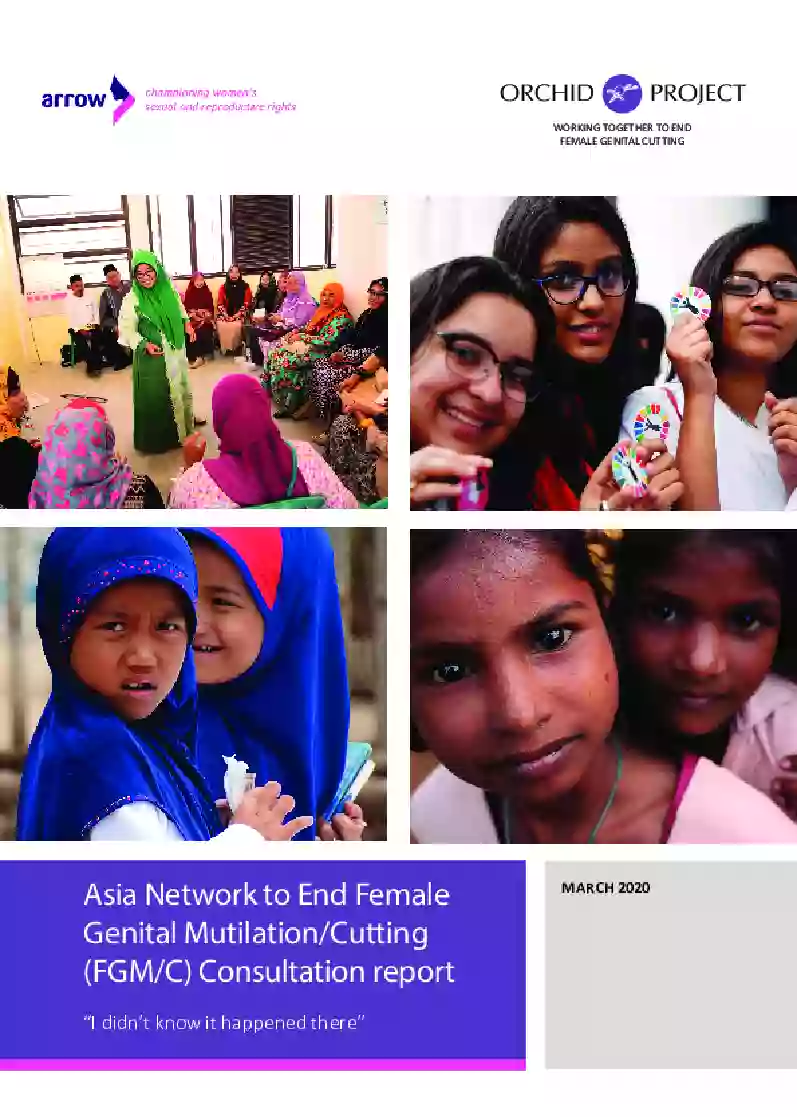Home | Research & Resources | Maldives
Key Findings
In the Maldives, the prevalence of FGC in women aged 15–49 is 12.9%.
FGC is most frequently referred to in the Maldives as sunnah.
Place
There is little variation in the prevalence of FGC across the country
Age
83.1% of cutting occurs before the age of five
Type
The most-commonly practised form appears to be Type 4
Agent
FGC appears to be increasingly medicalised (performed by midwives)
Distribution of FGM/C across the Maldives
There is little variation in the prevalence of FGC across the country. The area with the highest prevalence is the ‘South’ region (15.1%); followed by the Malé region (13.8%), and the ‘North’ region (13.3%). The ‘North Central’ region has the lowest prevalence, at 9.7%. It has been suggested that the higher rate of cutting in urban Malé (where 38% of the population resides), compared to the ’Central’ region, which is entirely rural, is due to the increased rural-to-urban migration that has taken place over the past few decades.
Trends in FGM/C Prevalence in the Maldives
The data suggest that the practice of FGC has significantly reduced over the past 50 years. 37.5% of women in the 45–49 age cohort have undergone the procedure, compared to only 1% of women aged 15–19. Also encouraging is that only 1.1% of the daughters (aged 0–14) of women surveyed by the DHS have been cut. However, although girls are usually cut before the age of five, girls/women may also undergo FGC at puberty or just before marriage.
FGM/C Legislation in the Maldives
Currently, there is no law against FGM/C in the Maldives.
The Maldivian Government had planned to criminalise FGC in 2021 on advice from the United Nations’ Committee on the Elimination of Discrimination against Women. Despite ‘relentless campaigning’ from women’s-rights groups, however, no laws have been enacted to date.
Development Indicators
Population Growth
575,179 (as at 4 January 2024) with a 1.79% growth rate (2024 est.)
Infant Mortality
24.4 deaths per 1,000 live births (2024 est.)
Maternal Mortality
57 deaths per 100,000 live births (2020 est.)
Gender Index
67 out of 166 countries (2024)




.webp)
_cover.webp)
